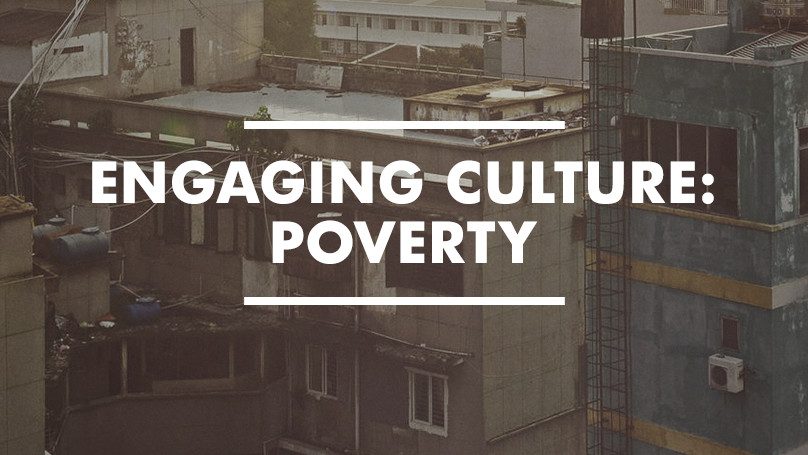Poverty: A Confusing Conversation Leading to Misguided Good Intentions
How does a minister help a homeless person walking through the doors of a church looking for a place to sleep that night? What do you say and do when a family member calls you, asking that you pay their gas bill again this month? Naturally, the Spirit prompts compassionate responses within the followers of Christ. Not all benevolence, however, is effective or even justified. Misdiagnosing the cause of a person’s poverty often leads well-intentioned Christians to work toward misguided goals. Many Christians zealously want to help, but ultimately “hurt the poor” when their efforts have nothing to do with the root cause of a person’s sorrow. The reality is that poverty is a confusing conversation in many instances. So, thinking through solutions to poverty requires Christians to diagnose the problem or risk reinforcing or enabling the root issues of a person’s poverty.
Many Christians zealously want to help, but ultimately “hurt the poor” when their efforts have nothing to do with the root cause of a person’s sorrow.
Brian Fikkert, author of When Helping Hurts, defines poverty as, “the inability to fully experience image bearing.” Fikkert’s definition is vitally important because poverty is not an economic problem alone. When believers think about poverty, typically, one’s mind gravitates to the issue of lacking material possessions. Yet, poverty is much broader. Any instance of the human experience that is not aligned with Scripture is a form of poverty. A person may be impoverished economically, or have an impoverished marriage, or an impoverished relationship with the Lord. Whether it is economic, relational, or spiritual, poverty comes in many forms.
Yet, poverty is much broader. Any instance of the human experience that is not aligned with Scripture is a form of poverty.
After expanding the definition of poverty, believers should think through five considerations that will greatly change the nature of a church’s ministry to the poor.
1. We are all “poor.”
The core message of the gospel has great equalizing implications because the common human experience is defined by poverty. No one is fully healthy and exactly what God envisions for his image bearers. The gospel of Christ offers forgiveness, hope and restoration where there is poverty now. My poverty may look different than a person experiencing economic poverty, but we are both less than what God wants for our lives. Rather than treating the poor in a paternalistic way, implying that you “have it all together,” make sure you address them according to the gospel: there is nothing good in you that deserves confidence apart from God’s grace.
The core message of the gospel has great equalizing implications because the common human experience is defined by poverty. No one is fully healthy and exactly what God envisions for his image bearers.
2. Relationships.
The key to helping someone step out of poverty into health is gospel-driven relationships. I cannot diagnose the root-level cause of someone’s poverty apart from truly knowing that individual. If I want to minister to the poor, I must be willing to go beyond material handouts to know that person’s name, hopes, dreams, as well as his life circumstances creating the particular form of poverty he is facing.
3. Meet needs without duplicating services.
A great tragedy in American Christianity is that we duplicate existing ministries and services in our communities, thus using God’s resources unnecessarily. Rather than devoting a great deal of money to starting a food pantry, why not partner with an existing food pantry to feed a family that came to your church asking for help. Then, use the money that you did not spend unnecessarily to pay their deposit on an apartment?
4. Benevolence fund.
Churches and individual families need to have money set aside to help the poor who are in desperate circumstances. Offering relief to a person’s physical suffering creates an opportunity to enter a fruitful relationship. Be prepared to bless the economically impoverished, sharing the love of Christ with people who are harassed by difficult life circumstances.
Offering relief to a person’s physical suffering creates an opportunity to enter a fruitful relationship.
5. From relief to development.
Only providing material relief to a person’s suffering becomes a Christian version of the welfare system. Our job, as believers, is to help develop people within the ongoing relationships of a community of faith. We are called to restore dignity to people whose lives have been stripped—either by personal choices or the sins of others against them—of meaning and worth due to them as God’s image bearers. Hopefully, these thoughts will change the way you and your church view the poor as you seek opportunities to minister to hurting people. How are you helping impoverished people move towards spiritual, economic, and relational health? How are you developing them rather than simply putting band-aids on their surface wounds?
Published November 24, 2015
